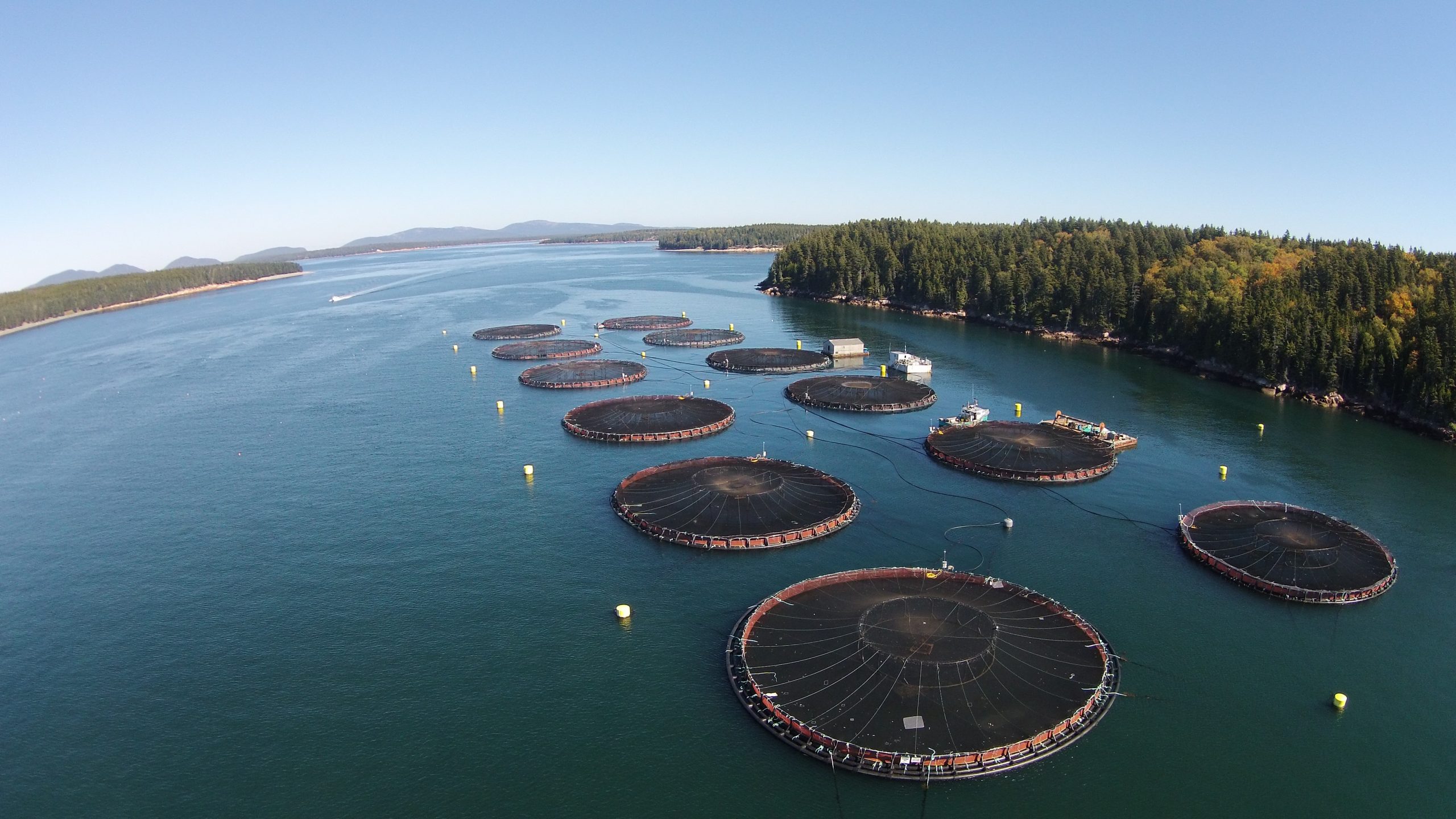August 29, 2022 — Last week, the PBS Newshour featured a segment on salmon farming, addressing the challenges and innovations that have accompanied the industry’s growth. Newshour science correspondent Miles O’Brien talked to salmon farming industry members about the state of the industry and improvements being implemented. As demand for seafood increases each year, aquaculture is likely to play a major role in keeping Americans well-fed and healthy.
Below is an excerpt from the transcript of the segment. Watch the full video here.
Miles O’Brien:
Off of Swan’s Island, we boarded the ship where they monitor and feed their crop of nearly a half-million salmon. They’re kept in 16 flexible floating nets made with stainless steel fiber to guard against escapes.
We watched as they fed some of the fish using a network of submerged cameras.
Andrew Lively, Cooke Aquaculture:
He’s seeing the fish, and there’s no feed coming down through the water column.
Miles O’Brien:
The trick is releasing the feed at just the right rate. Too fast, and it falls to the bottom of the sea, impacting the bottom line. But it also can cause an environmental problem. As the feed decomposes, it generates nitrogen, as does the fish poop.
High nitrogen levels are a persistent problem for salmon farmers.
Do you feel like you have met those challenges?
Andrew Lively:
One of the big ways to deal with that challenge is proper site location and proper density. We’re in an area that gets about a 12-foot rise and fall of water twice a day, so lots of current, lots of freshwater going through here.
Miles O’Brien:
Even at the perfect location, fish farmers must closely monitor a myriad of factors to keep their crops healthy.
Farmed salmon are frequently beset with serious infestations of sea lice. To combat the problem, Cooke deploys custom designed boats equipped with warm freshwater showers to clean the fish. It’s an expensive solution that might soon have an unlikely replacement.
Marine biologist Steve Eddy is director of the Center for Cooperative Aquaculture Research at the University of Maine.
These fish are lumpfish. Tell me about them.
Steve Eddy:
So these are used as a cleaner fish to remove sea lice off of farmed salmon, a form of biological control.
Miles O’Brien:
Researchers here believe one or two lumpfish per 10 salmon in a pen should be enough to delouse the whole school.
It takes about three years for a salmon to grow from egg to market. As complex and resource-intensive as aquaculture is, its sustainability compares favorably to some land-based agriculture.

